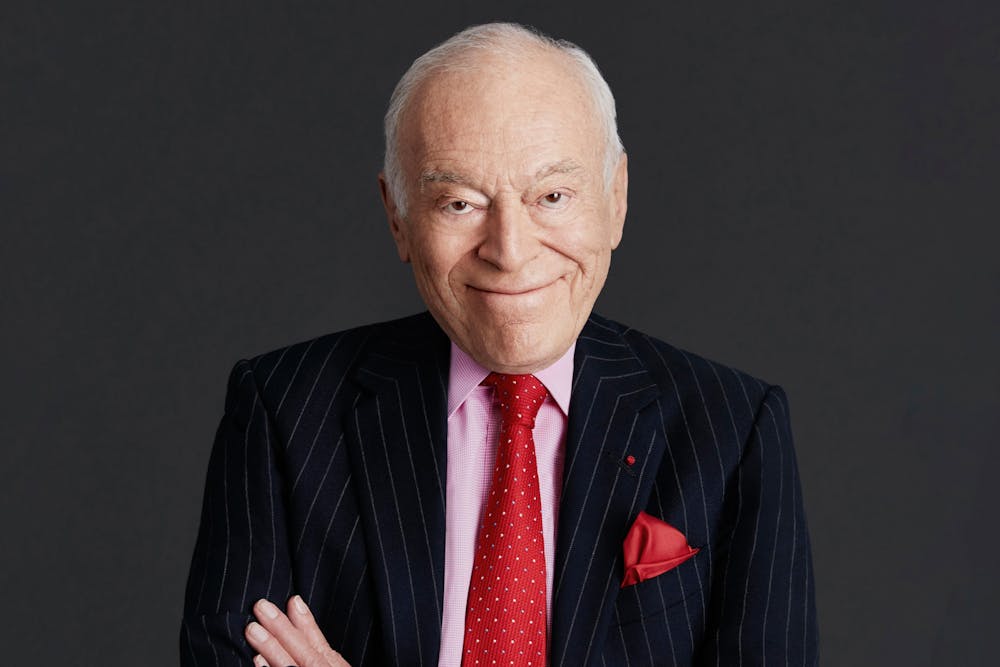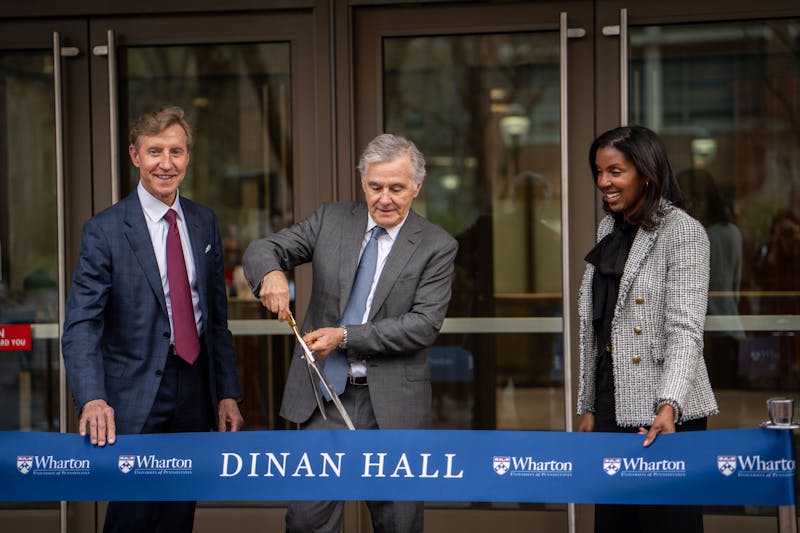
1954 Wharton graduate and major University donor Leonard Lauder died June 14 at the age of 92.
Lauder, who co-founded the Joseph H. Lauder Institute for Management and International Studies, made multiple high-profile contributions to the arts, medical research, and academia throughout his career. He served as the CEO of cosmetics giant Estée Lauder Companies from 1982 to 1999, when he stepped down to become chairman emeritus — a post he held until his death.
"In all areas of his life, Leonard was known for his vision, drive, collegiality, and generosity," Penn President Larry Jameson and Board of Trustees Chair Ramanan Raghavendran wrote in a statement to The Daily Pennsylvanian. "His remarkable service to the University reflected all these gifts, and Penn is surely a better place today because of his extraordinary leadership and support over many decades. We will miss him dearly and offer our sincere condolences to his entire family."
Lauder began working at Estée Lauder at the age of 25, after serving three and a half years on active duty in the United States Navy, followed by another four and a half in the Navy Reserve. He stated that his time in the Navy taught him that “[s]tanding for something far bigger than yourself becomes its own reward,” in an interview with the U.S. Naval Institute.
Along with his business pursuits, Lauder dedicated himself to philanthropic endeavors throughout his life. In their written statement, Jameson and Ramanan acknowledged Lauder's "devotion to Penn."
In honor of their father, Lauder and his brother, Ronald Lauder — who also graduated from the Wharton School but halted his donations to the University in 2023 — founded the Lauder Institute at Penn in 1983. According to the Institute’s website, the program “has since shaped generations of globally minded leaders through the integration of international studies and business education.”
In 1996, Lauder gave $10 million to the Institute to cement “the University’s leadership in the future of the field of international management.” The gift helped expand the degree, adding new programs in addition to the existing language and cross-cultural offerings.
Lauder gifted Penn an additional $125 million in 2022 to support a new tuition-free nursing program — the largest ever donation to an American nursing program, according to Penn Today — aiming to address the nation’s shortage of primary care providers and increase health care equity.
“We extend our heartfelt condolences to his family and friends, and anyone else impacted by his passing,” the School of Arts and Sciences wrote in a statement. “His generosity will continue to shape the lives of those at the Institute and in the wider Penn community for generations to come.”
In a post shared on Instagram, former Penn president Amy Gutmann said that Lauder’s “wisdom, warmth, and dedication to his friends and family were second to none, and will never be forgotten.”
Lauder was also responsible for co-founding the Alzheimer’s Drug Discovery Foundation — the “only charity solely focused on finding drugs for Alzheimer’s,” according to the Foundation’s website.
“Leonard Lauder was a once-in-a-generation visionary whose leadership, along with his brother Ronald, reshaped the Alzheimer’s research landscape,” ADDF chief science officer Howard Fillit said in a statement.
ADDF, which was co-founded by Fillit and the Lauder brothers in 1998, “[i]nvested more than $370 million into over 765 drug discovery programs across 21 countries” among other contributions, Fillit added.
Lauder also served as the chairman of the board of directors at the Breast Cancer Research Foundation, which was founded in 1993 by his late wife, Evelyn Lauder — a prolific contributor to the research field.
Lauder also made prominent contributions to the arts. In 2013, he promised his collection of 78 Cubist paintings, drawings, and sculptures to New York City’s Metropolitan Museum of Art, as reported by The New York Times. At the time, the collection was valued at more than $1 billion.
“He was the most charitable man I have ever known,” Lauder’s son, William Lauder, said in an official Estée Lauder statement. “[B]elieving that art and education belonged to everyone, and championing the fight against diseases such as Alzheimer’s and breast cancer.”
“Together with my family, the Estée Lauder Companies, and the countless people he touched, we celebrate his extraordinary life,” he added.
The Daily Pennsylvanian is an independent, student-run newspaper. Please consider making a donation to support the coverage that shapes the University. Your generosity ensures a future of strong journalism at Penn.
Donate








